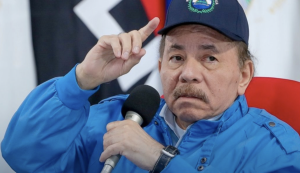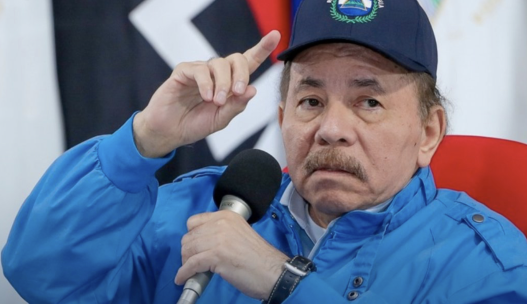
OAS BIDS FAREWELL TO NICARAGUA AND IACHR POINTS TO DEEP HUMAN RIGHTS CRISIS IN THAT COUNTRY
On Wednesday, November 8, 2023, the Organization of American States (OAS) said goodbye to Nicaragua, a country that will officially cease to be a member of the institution on November 19. The following day, the Inter-American Commission on Human Rights (IACHR) noted that the human rights crisis continues to deepen in the Central American nation.
In its farewell statement, the OAS urged Nicaragua to respect all human rights because that is its legal obligation.
A resolution unanimously approved by the OAS Permanent Council regrets Nicaragua’s departure from the organization, but also notes that this “does not leave without effect the other legal obligations for which it is responsible by virtue of its ratification of other inter-American conventions”.
Nicaragua “remains bound to respect all human rights reflected in the customary norms (…) in the multilateral conventions” to which it is a party and “those derived from general principles of international law”, as summarized by the German media DW, a partner of EditoRed.
The OAS also tells Daniel Ortega, president of Nicaragua, that it will continue to pay special attention to the situation in the country.
THE NUMBERS OF THE HUMAN RIGHTS CRISIS
The IACHR, which is part of the OAS, has issued a report this Thursday in which it explains that between April 18, 2018 and August 31, 2023, the Nicaraguan government canceled the legal status of 3,390 organizations, of the 7,227 that were registered in 2018. The assets of the cancelled institutions were confiscated by the State.
2018 was the year in which anti-government protests broke out, during which 300 people were killed.
The closure of these organizations has been considered by the IACHR as an attack on pluralism that demonstrates the intention “to completely close the civic and democratic space” in Nicaragua.
In Nicaragua “a policy of repression and systematic persecution prevails against anyone considered to be an opponent of the government through the imposition of a police state,” the IACHR denounces in its report.
It also assures that since April 18, 2018, there have been more than 2,000 arbitrary arrests, followed by smear and harassment campaigns.
Dozens of activists and organizations have been forced into exile. Those who have remained work “clandestinely, in a climate of fear, persecution and self-censorship”.
WHY IS NICARAGUA LEAVING THE OAS?
Nicaragua’s exit from the OAS, of which it has been a member since 1950, is the result of a decision by the Nicaraguan president. His reason? That this inter-American organization did not recognize as valid the elections of 2021, in which Ortega was reelected, with his rivals in jail or in exile.
The Nicaraguan political opposition reported last September that there were 90 prisoners of conscience. Among them, at least 16 women, a bishop and five priests. The detainees have complained of poor food and poor medical attention.
As a member of the Mechanism for the Recognition of Political Prisoners in Nicaragua told DW, “the most common illnesses are the result of overcrowding and insalubrity (allergies and skin fungus, asthma, gastric problems), but there are also very worrying cases of people suffering from diabetes, hypertension, heart conditions, Parkinson’s and kidney failure, who are not being treated”.
The Grupo Secuestrados Políticos Unidos (GSPU) recently denounced that many prisoners have lost weight and are not allowed to bring in food from home, forcing them to consume prison food, often spoiled “or with cockroaches and worms”.
In 2021, Ortega was reelected for a fourth consecutive term. The IACHR has denounced that the restrictions to human rights “have been possible due to the subordination of all public powers to the Executive” and the absence of “limits and counterweights”.
THE EUROPEAN UNION MAINTAINS SANCTIONS
Last October, the European Union (EU) decided to renew for one more year the sanctions it imposed on members of the Nicaraguan government and entities. This new period will expire on October 15, 2024.
The EU also does not recognize the most recent elections, considering that they did not meet democratic standards.
The sanctions apply to 23 individuals and three entities. Among the individuals are Nicaragua’s vice president, Rosario Murillo, who is also Ortega’s wife. Several of her children are also on the sanctioned list.
They are banned from entering any of the EU countries and their assets in European institutions have been frozen.
This text is free to use. If you plan to use it, please cite EditoRed.



